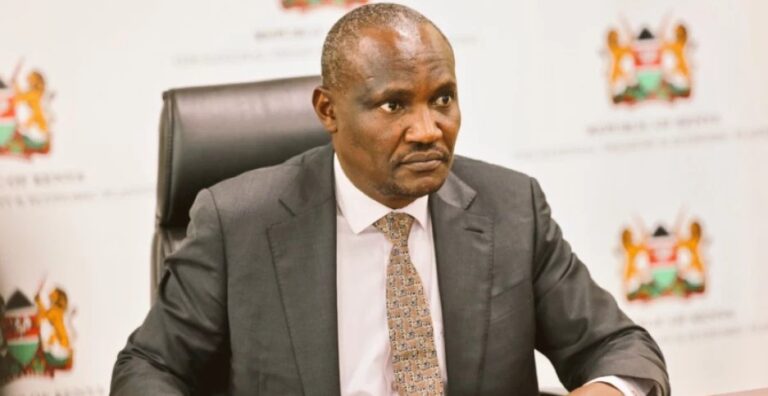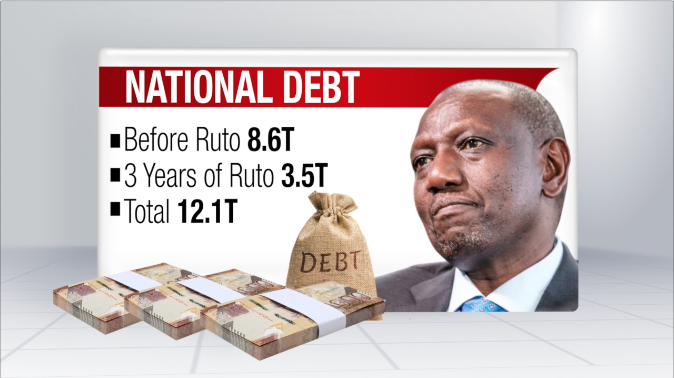
President Ruto signing a deal with UK govt. Photo/Courtesy
By Daisy Okiring
Kenya’s trade with the United Kingdom has reached an all-time high of Sh340 billion (£2 billion), highlighting a renewed economic alliance between Nairobi and London. The milestone, achieved in the year ending September 2025, marks an 11.9 percent increase from 2024, driven by a surge in exports and stronger investment ties.
A Growing Economic Partnership
According to data from the UK Department for Business and Trade, Kenya’s exports to the UK grew faster than its imports, showing a positive shift in trade balance. Kenya exported goods worth Sh63 billion (£371 million) and services valued at Sh71.5 billion (£421 million) to the United Kingdom.
The report shows strong performance in agricultural and value-added exports. Animal and vegetable products recorded the fastest growth, climbing 15.6 percent to Sh28.7 billion (£169.2 million). Beverages such as coffee and tea followed closely, increasing by 12.8 percent to Sh24.3 billion (£143.3 million).
Imports Also on the Rise
The UK’s exports to Kenya rose to Sh134.6 billion (£792 million) from Sh124 billion (£733 million) in 2024. Key imports included mechanical power generators, refined oil, and motor vehicles. Machinery led the list with an 18.3 percent growth, while oil and vehicles increased by 12 and 10 percent respectively.
Experts say this exchange demonstrates the steady integration of both economies, particularly in energy, manufacturing, and agriculture.
Read More: Kenya’s tourism sector hits record Ksh.452 billion in 2024 – CS Miano
A Partnership Built on Shared Ambition
Chargé d’Affaires at the British High Commission in Nairobi, Ed Barnett, attributed the growth to the renewed UK-Kenya Strategic Partnership signed in July 2025. He said the two nations are working to dismantle trade barriers and create a more enabling business environment.
“The UK and Kenya are turbocharging trade. Our renewed Strategic Partnership is already delivering results in a matter of months,” Barnett said. “To turn ambitions into reality, we’re working together to break down trade barriers. We go far when we go together.”
The new agreement aims to double bilateral trade by 2030 and expand collaboration in green investment, technology, and infrastructure.
Read More: Kenya borrowing Sh32.4 million every hour as public debt hits Sh12 trillion
Kenya’s Push for Export Diversificati
Trade Principal Secretary Regina Ombam described the numbers as a reflection of Kenya’s growing competitiveness in international markets. She noted that the government is focusing on diversifying exports to reduce reliance on traditional products.
“We are propelling our export growth, targeting to increase product range and market destination diversity,” Ombam said. “The data we’ve seen is a testament to our collective efforts.”
She added that Kenya is investing in export promotion, branding initiatives, and value addition to boost the global appeal of locally made products. “We will support this process by promoting and facilitating branding and export promotion of goods and services made in Kenya,” she said.
British Investment in Kenya
The United Kingdom remains one of Kenya’s largest foreign investors. The British High Commission estimates that more than 150 British companies currently operate in the country, directly employing over 250,000 Kenyans. These firms are among Kenya’s top taxpayers, contributing significantly to job creation, industrial growth, and innovation.
Trade experts say such partnerships will be vital as Kenya seeks to position itself as an investment hub for East Africa. The Nairobi International Financial Centre and the UK-Kenya Economic Partnership Agreement are expected to further enhance business flows between the two countries.
Looking Ahead
With trade now surpassing Sh340 billion for the first time, both governments are optimistic about sustaining the growth momentum. The next phase of the partnership will focus on scaling up renewable energy, boosting digital infrastructure, and supporting small and medium enterprises involved in export trade.
For Kenya, the record figures represent more than just numbers—they mark a turning point toward stronger global competitiveness and deeper economic cooperation with one of its oldest partners.



